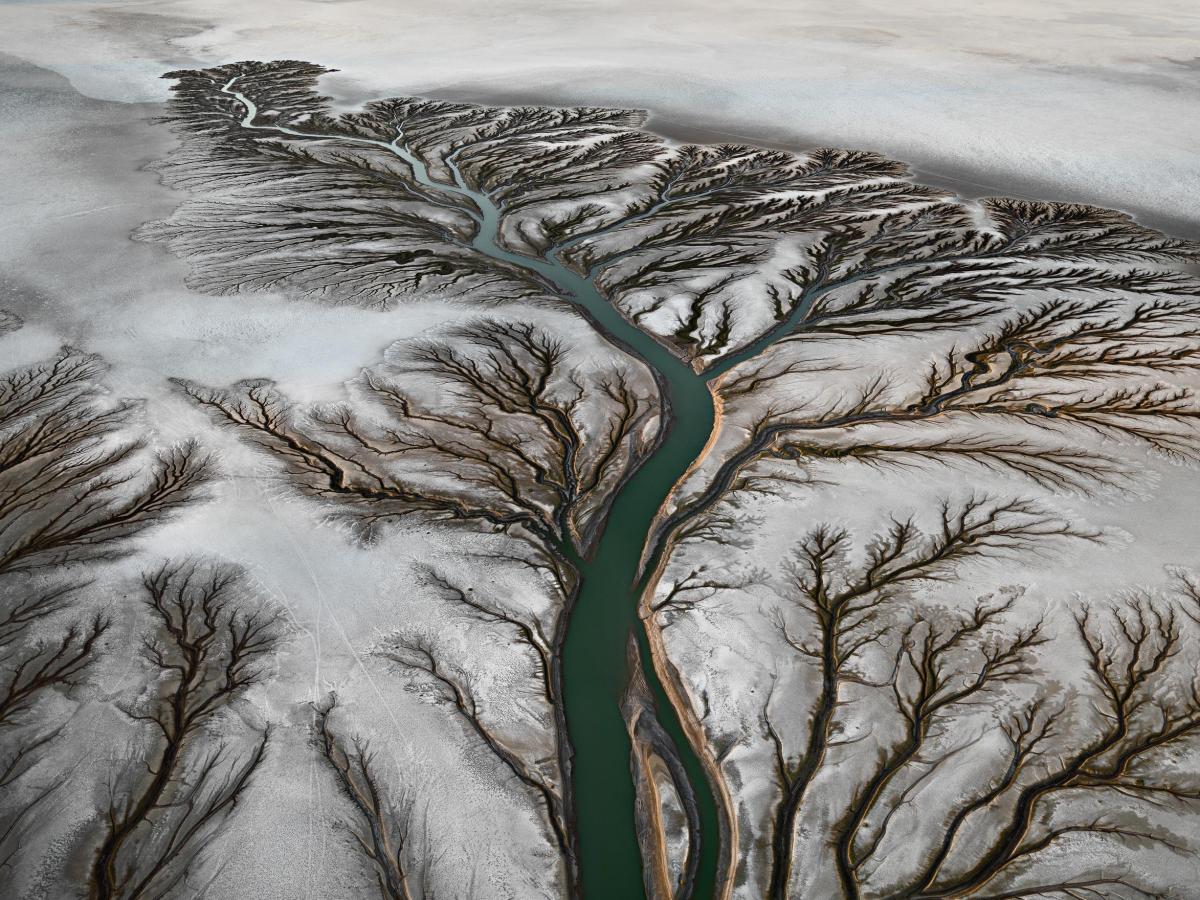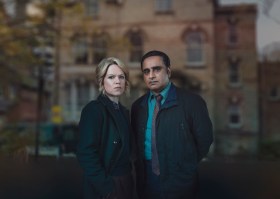The Manufactured Landscapes team of Jennifer Baichwal and Edward Burtynsky return for another documentary collaboration, this time looking not at the intervention of humanity on the earth, but the way in which the planet’s greatest resource shapes mankind’s existence. As a title, Watermark says it all, the film gazing literally and intricately at the imprint made by oceans, lakes and expanses of liquid, as well as the impact of people on its use, control, and continuation as a necessary component of life.
This time, though Burtynsky remains an on-screen presence, his involvement isn’t just limited to taking viewers through big screen projections of his photographic vistas, extending also to acting as a co-director. The Canadian snapper guides the use of 5K ultra high-definition digital video cameras that hover over vast, shimmering horizons in extreme wide shots, stunning in their detailed depiction. Captured from vantage points usually unable to be seen by the general populace, the sheer sight, scale and scope of the imagery elicits wonder. Slowly gliding above watery landmarks, both natural and manmade, provides breathtaking visuals, not to mention a wide-ranging view of the true extent of the planet’s wet footprint that steps to more intimate confines for each location featured.
It easily follows that the work of cinematographer Nick de Pencier (The End of Time) is the star of the show, work that enables the film to sit amongst a triptych of Burtynsky’s offerings on the subject, including his monograph, Water, and accompanying exhibition of photographs. Watermark is far from just a feast for the eyes, however, courtesy of snippets of vocalised information, the native sounds of the places captured, and a reflective score by Roland Schlimme (also the film’s editor) and Martin Tielli. The production of the book also provides an interesting counterpoint to the scenic segments, but this is not a documentary monopolised by talking heads.
From the water streaming from China’s Xiaolangdi Dam on the Yellow River that opens the film, to the seeping of waste from leather factories in Colombia, and clocking everything from beaches and fountains in between, Watermark presents a meditative melange of the flow of water around the globe that is best described as a visual essay. Not afraid of the abstract in aesthetic and idea, perhaps missing is the provision of anything more than cursory context – though the documentary’s contemplative contentment in looking rather than questioning its images is easily adapted by the watching audience.
It is in the contrast of extremes that the feature makes its statement, of abundance and then absence, health and then hazard, that the filmmakers obviously expect will say more than the quick glimpses of experts or data gleaned. Slowly and steadily, Watermark is an effort in which observation from a patterned perspective is used to prompt consideration, a noble intention impressively executed, even if the ends lag slightly through the means.
Rating: 3 ½ out of 5 stars
Watermark
Directors: Jennifer Baichwal and Edward Burtynsky
Canada, 2013, 92 mins
Distributor: Madman
Classification: TBC
Revelation Perth International Film Festival
www.revelationfilmfest.org
3 – 13 July
At ACMI from 5 – 13 July
Actors:
Director:
Format:
Country:
Release:





